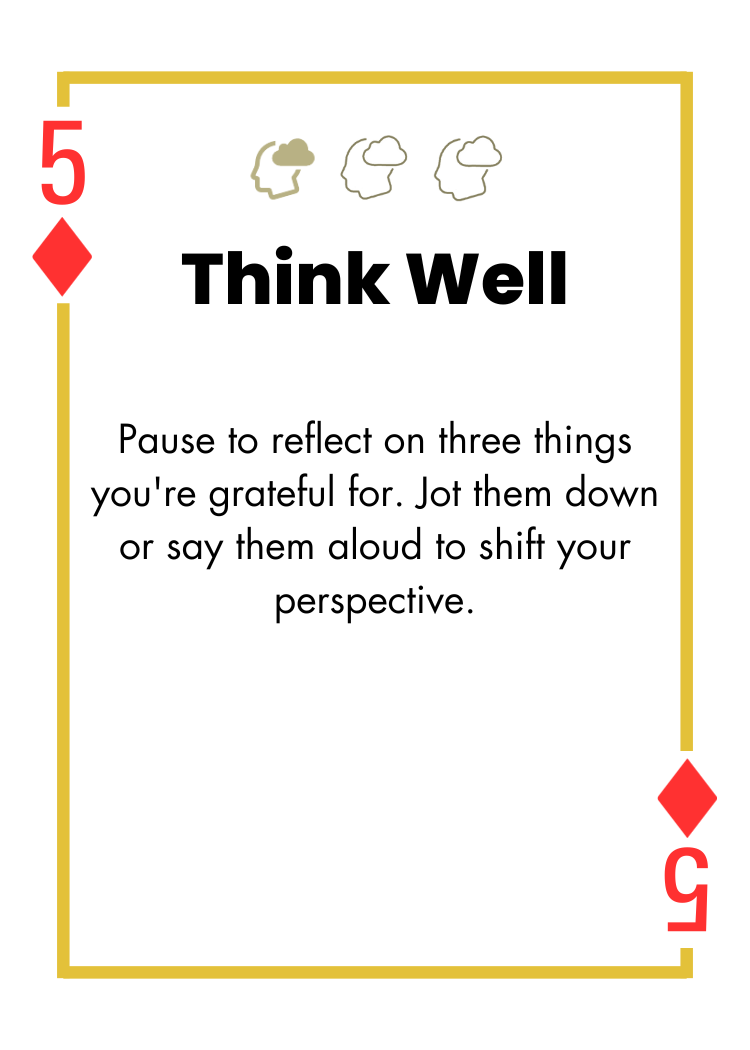5 of Diamonds - Grateful Thoughts

Gratitude is defined as “as a generalised tendency to recognise and respond with grateful emotion to the roles of other people’s benevolence in the positive experiences and outcomes that one obtains” (McCullough, Emmons, & Tsang, 2002, p. 112).
The “classic” gratitude activity entails compiling written lists of numerous points for which one is grateful on a regular basis. A good example is people could be tasked to keep a diary or journal where they write three things for which they are grateful and complete each night right before bed (Wood et al., 2010).



 See Other Cards!
See Other Cards!